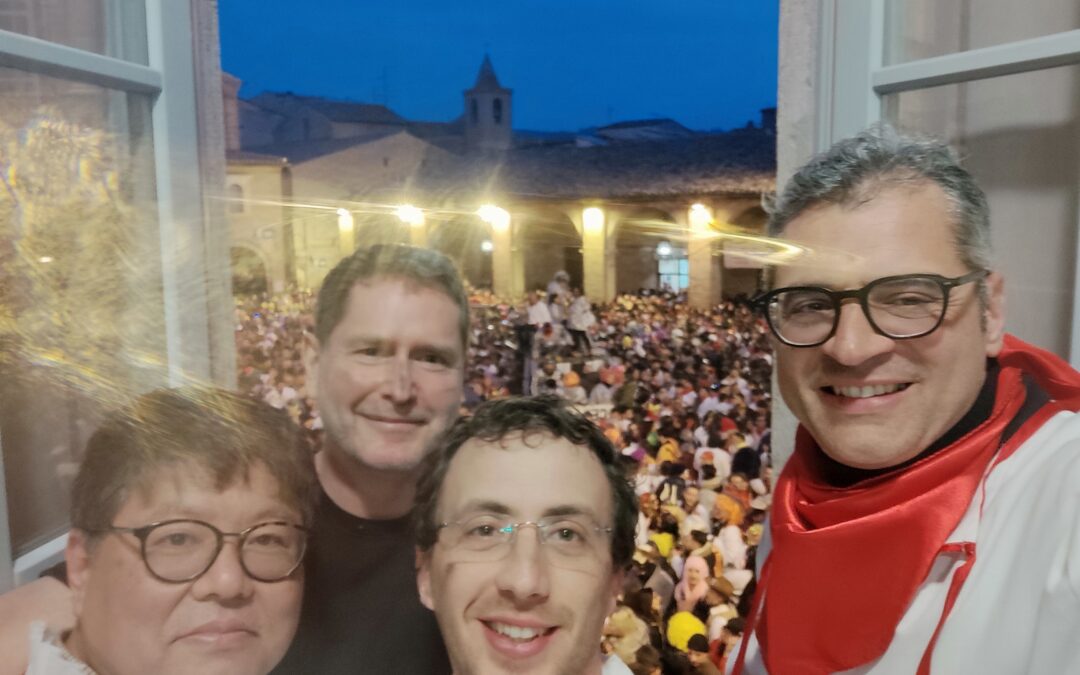The Carnival of Offida, a renowned historical celebration in the Marche region, stands as a significant cultural event within the local community, offering a vibrant and immersive experience. Participants are treated to a variety of festivities such as street dancing, a fake rodeo, a fire ritual, communal meals, and much more.
Etymologically speaking, the term “Carnival” finds its roots in Latin, meaning “to remove meat.” This designation is closely tied to the Christian calendar, where Carnival marked the beginning of Lent.
Originally, the Church permitted this exuberant behaviour solely prior to Lent and outside of church premises. By doing so, they inadvertently fostered the development of the Carnival we recognize today—a social rite characterized by singing, dancing, indulgence in drink, and ecstatic rituals.
However, the Protestant Reformation eventually resulted in its prohibition. People were no longer allowed to sing, dance, or exhibit any collective excitement, leading to a wave of melancholy that swept across Europe. Nevertheless, the Carnival tradition endured and experienced a resurgence in the 20th century.
Drawing inspiration from the worship of Dionysus and the God of wine in ancient Greece, Carnival became a means for individuals from all walks of life to momentarily escape their socioeconomic realities. It served as a platform for mocking authority figures, challenging power dynamics through the use of masks, and even became fertile ground for uprisings and revolutions, which often left those in power deeply unsettled.
Considering all of these factors, from a learning point of view, participating in the Carnival of Offida not only provides an opportunity to engage in an authentic cultural and folk ritual but also encourages the development of critical and alternative thinking.
Source: The important social function of carnival (leadingbeat.com)

